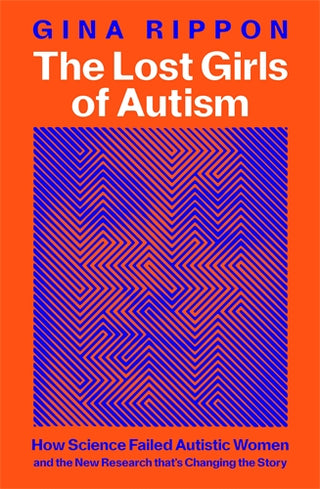The Lost Girls of Autism: The New Science of Neurodiversity in Women and Girls
- Unit price
- / per
-
Author:Gina Rippon
-
ISBN:9781035011636
-
Publication Date:July 2025
-
Edition:1
-
Pages:336
-
Binding:Paperback
-
Publisher:Pan Macmillan
-
Country of Publication:United Kingdom


A Back Order button means that we don’t have the book in stock at our store. It may already be on order – or we can order it for you from a publisher or distributor at no additional cost.
As we source items from around the globe, a back-order can take anywhere from 5 days to several weeks to arrive, depending on the title.
To check how long this might take, you’re welcome to contact us and we can provide an ETA or any other information you need. We recommend checking the timeframe before committing to an online order.
The Lost Girls of Autism: The New Science of Neurodiversity in Women and Girls
- Unit price
- / per
-
Author:Gina Rippon
-
ISBN:9781035011636
-
Publication Date:July 2025
-
Edition:1
-
Pages:336
-
Binding:Paperback
-
Publisher:Pan Macmillan
-
Country of Publication:United Kingdom
Description
The history of autism is male. Nearly all the first studies focused on boys. The classic hallmarks of autism, such as avoiding eye contact, are heavily biased towards men. When autistic girls meet doctors, they are still misdiagnosed with anxiety, depression, and even personality disorders. As millions of women discover they have the condition later in life, we are only now starting to get to grips with the problem. In this groundbreaking book, world-leading brain scientist Gina Rippon examines why neurodivergence in women has been systematically ignored and why girls have been denied the help and support they need. Raising huge questions about how boys and girls are socialized differently, Rippon reveals the fascinating science behind female neurodivergence and what it tells us about the medical establishment. Exploring the unique challenges faced by women who have lived undiagnosed for years, Rippon argues it is high time for society to recognize and embrace the full spectrum of autistic experience.
Adding product to your cart
You may also like
A Back Order button means that we don’t have the book in stock at our store. It may already be on order – or we can order it for you from a publisher or distributor at no additional cost.
As we source items from around the globe, a back-order can take anywhere from 5 days to several weeks to arrive, depending on the title.
To check how long this might take, you’re welcome to contact us and we can provide an ETA or any other information you need. We recommend checking the timeframe before committing to an online order.
You may also like
You may also like
-
The history of autism is male. Nearly all the first studies focused on boys. The classic hallmarks of autism, such as avoiding eye contact, are heavily biased towards men. When autistic girls meet doctors, they are still misdiagnosed with anxiety, depression, and even personality disorders. As millions of women discover they have the condition later in life, we are only now starting to get to grips with the problem. In this groundbreaking book, world-leading brain scientist Gina Rippon examines why neurodivergence in women has been systematically ignored and why girls have been denied the help and support they need. Raising huge questions about how boys and girls are socialized differently, Rippon reveals the fascinating science behind female neurodivergence and what it tells us about the medical establishment. Exploring the unique challenges faced by women who have lived undiagnosed for years, Rippon argues it is high time for society to recognize and embrace the full spectrum of autistic experience.
-
-
Author: Gina RipponISBN: 9781035011636Publication Date: July 2025Edition: 1Pages: 336Binding: PaperbackPublisher: Pan MacmillanCountry of Publication: United Kingdom
The history of autism is male. Nearly all the first studies focused on boys. The classic hallmarks of autism, such as avoiding eye contact, are heavily biased towards men. When autistic girls meet doctors, they are still misdiagnosed with anxiety, depression, and even personality disorders. As millions of women discover they have the condition later in life, we are only now starting to get to grips with the problem. In this groundbreaking book, world-leading brain scientist Gina Rippon examines why neurodivergence in women has been systematically ignored and why girls have been denied the help and support they need. Raising huge questions about how boys and girls are socialized differently, Rippon reveals the fascinating science behind female neurodivergence and what it tells us about the medical establishment. Exploring the unique challenges faced by women who have lived undiagnosed for years, Rippon argues it is high time for society to recognize and embrace the full spectrum of autistic experience.
-
Author: Gina RipponISBN: 9781035011636Publication Date: July 2025Edition: 1Pages: 336Binding: PaperbackPublisher: Pan MacmillanCountry of Publication: United Kingdom
-



